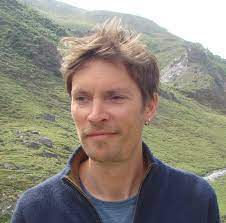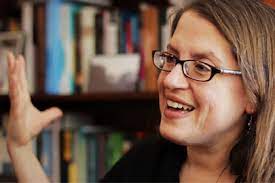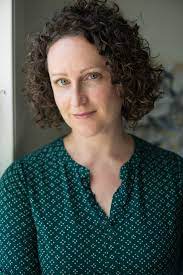PROGRAM (Winter-Spring 2022)
Each session will be both in-person (if possible with respect to the sanitary situation) and online (Zoom).
- January 3rd, 2022 : (closed session) planning meeting
- January 27th, 2022 (10am) : Maurizio MELONI (Deakin University)

Biopolitics in the longue durée: the government of health, environment, and population before modernity
Foucault’s argument that a major break occurred in the nature of power in the European Eighteenth century – an unprecedented socialization of medicine and concern for the health of bodies and populations via the manipulation of their physical and social milieu, i.e. the birth of biopolitics- has become since the 1990s a dominant narrative among social scientists, but is rarely if ever scrutinized in its premises. This presentation problematizes Foucault’s periodization about the politics of health and the way this story has been uncritically solidified into a dominant narrative. Building on novel historiographic work, it challenges the modernist bias of histories of biopolitics and public health and considers an earlier and more plural history of collective practices of health and government of biological bodies of which the story told by Foucault is just one important episode. Finally, it discusses the implications of this longue durée view for wider debates on the “return of the environment” and body-world configurations in current postgenomic models of life.
- February 14th, 2022 (10am) : (closed session) The concepts of embedding and embodyment: a comparison
- March 14th, 2022 (10am) : Hannah LANDECKER (UCLA Institute for Society & Genetics)

The Shiftworker as Model Organism: Sugar and Time in the Epigenetic Body of Chronic Disease
In 2019, the International Agency for Research on Cancer (IARC) declared night shift work as a “probable carcinogen.” Concurrently, artificial light at night has earned its own acronym – ALAN – entering toxicological discourse as an endocrine disruptor, despite not being a biochemical substance. Indeed, cohort studies on shift workers from nurses to meat plant workers play a central role in providing statistical evidence and biological samples used to substantiate causal links between disrupted schedules, poor blood glucose control, and chronic illnesses. In molecular terms, the shift worker body has been a key site of work for conceptualising the intersections between epigenetic modifications such as methylation and acetylation, metabolism, and circadian rhythms. This paper delves into the history of shift work health as an object of biomedical research, and uses this example to trace a metabolic turn in epigenetic disease models. In particular, this example shows how disease models that invoke environmental epigenetic explanations have been challenged and changed by connection to the spatial and temporal compartmentalisation of metabolite cofactors in epigenetic processes. More generally, the shift worker has become a kind of model system for studying the contemporary condition of shortened sleep, overnutrition, exposure to screens at night, and the wages of noise and light pollution in cities. The sheer accumulated volume of thousands of studies on shift workers has provided a foundation for conceptualizing capitalist time and social inequities in timing as partially explanatory for social inequalities in health and the rapid rise of metabolic disorders in Western societies.
ID: 974 4816 6076
Code: 973631
- March 28th, 2022 (10am, online only) : Tristan FOURNIER (CNRS, EHESS, Paris)

L’épigénomique nutritionnelle ou les mirages de la responsabilité
L’épigénomique nutritionnelle porte une promesse ambivalente car les marques épigénétiques, c’est-à-dire les modifications induites par l’environnement – par exemple l’alimentation – sur l’expression des gènes, seraient à la fois réversibles et transmissibles. D’une part leur réversibilité permettrait aux individus, par une modification de leurs habitudes alimentaires, de s’émanciper d’un certain déterminisme génétique ; d’autre part leur transmissibilité à l’échelle intergénérationnelle renforcerait l’injonction à une responsabilité accrue en matière de parentalité. Les résultats de deux enquêtes ayant porté sur le programme dit des « mille premiers jours de vie » montrent combien ce thème de la responsabilité reste parfaitement d’actualité : ce sont, parfois explicitement, les mères, les femmes enceintes et plus largement les femmes en âge de procréer qui sont visées, ceci contribuant à normaliser le projet parental, à stigmatiser des publics-cibles et au final à renforcer certaines inégalités sociales.
ID de réunion : 977 463 0949
Code secret : x4dRU0
- June 7th, 2022 at 3pm : Sara SHOSTAK (Brandeis University)

“When you heal the soil…”: Environmental racism and socioecological repair in contemporary urban agriculture
Drawing on data from an ethnographic study of urban agriculture in Massachusetts, this paper investigates the multiple meanings of soil for contemporary urban farmers and gardeners. I first consider how urban farmers speak for and with the soil in their neighborhoods to call attention to historical and ongoing environmental racism. These narratives highlight how racialized social processes – including redlining, blockbusting, white flight and disinvestment – have harmed both the health of urban soils and of the residents of BIPOC neighborhoods. I then describe how urban farmers and gardeners articulate the importance soil for health and well-being, especially for people whose relationships with the earth have been disrupted by colonialism and racism. These narratives draw on both scientific and spiritual frameworks to highlight the healing potential of re-establishing direct relationships with nature, reclaiming ancestral knowledge about the healing properties of plants, and reconnecting with the ancestors themselves. Analysis of these interlinked narratives contributes to emerging scholarship on the situatedness of ways of conceptualizing and interacting with soils; it calls attention especially to the role of racialized inequities in the processes through which harmful soil materialities are created and the possibilities of socioecological repair.
Meeting ID: 979 3541 2238
Code: 246044
June 16th, 2022 at 10am : Sarah RICHARDSON (Harvard University) CANCELLED 
- June 21st, 2022 at 10:30am (hybrid session) : Patrick ALLARD (UCLA Institute for Society and Genetics)

Transgenerational Epigenetic Inheritance: what future for a field with a complicated past?
Epigenetics has dramatically altered our perception of genetic information as the sole determinant of phenotypes and phenotypic variation. The “malleability” of our epigenome combined with recent work in transgenerational epigenetics has also led researchers of various fields to reconsider the notion of heredity. Yet, while these important discussions are happening, the very definition of the term Epigenetics is heterogeneous and the implication of epigenetic findings, especially in the context of transgenerational inheritance, are often misunderstood or misinterpreted. Here, we will review some of the most paradigm-shifting recent discoveries in Transgenerational Epigenetic Inheritance and will contrast them with the dogmas that they challenged. We will then turn to ask why these relatively recent discoveries, largely obtained in animal models, do not seem to change the perception of humans being susceptible to such phenomena and why the field has had little impact on the regulatory/legal practices surrounding chemical risk assessment.
Meeting ID: 981 7035 0816
Code: 723677







